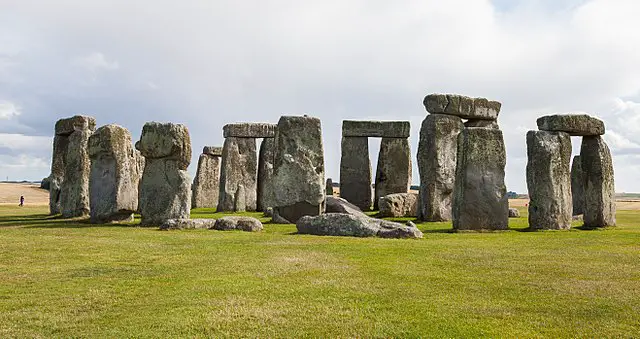It was a drizzly September morning in 1915 when a man named Cecil Chubb casually wandered into an auction house in Salisbury, England. His wife had asked him to buy curtains.
He came back with Stonehenge.
Yes, the Stonehenge, the 5,000-year-old circle of stones, steeped in mystery and Druidic legend. And no, this isn’t a Monty Python sketch. It actually happened. This strange, impulsive act by an unassuming barrister from Wiltshire would change the fate of one of the world’s oldest landmarks.
Seriously, Who Sells Stonehenge?
At the time, believe it or not, Stonehenge was privately owned. It sat in the middle of farmland, neglected and falling apart. People chipped off pieces of stone as souvenirs. Some even carved their initials into the ancient monoliths. It was more hangout spot than heritage site.
The Antrobus family, who owned the land, had suffered a recent death and decided to sell. So up it went, Lot 15 in a routine auction. The entire monument and the surrounding 30 acres. Starting bid? £5,000. (About £600,000 today, adjusted for inflation.)
Enter: A Very Surprised Crowd
Cecil Chubb wasn’t exactly planning to become a cultural hero that day. According to legend (and Cecil’s own chuckling later retellings), he felt it would be a shame for Stonehenge to be bought by someone outside Britain, especially during the height of World War I, when national pride was running high.
So he raised his hand. And won.
He bought the entire site for £6,600 (a little bidding war broke out near the end). That’s roughly the price of a modest house today. Imagine picking up the Eiffel Tower because it happened to be on Facebook Marketplace. Same energy.
From Private Oddity to Public Treasure
At first, people weren’t sure what to make of it. Was Chubb planning to build a summer home among the stones? Charge admission?
Nope. Three years later, in 1918, he gave it all away. He gifted Stonehenge to the British nation, on the condition that:
1. The public would always have access (for a “reasonable” fee).
2. The site would be preserved.
3. No one would turn it into a theme park or something dumb.
Thanks to that clause, and Cecil’s surprising act of generosity, Stonehenge transformed from a slowly crumbling mystery into a national icon.
The Restoration You Never Knew Happened
Here’s a fun fact most people don’t realize: Stonehenge, as you see it today, is partly the result of a massive 20th-century restoration project. Starting in the 1920s, some of the stones were re-erected, concrete was added for support, and fencing was installed to protect it from foot traffic and mischief.
Was it controversial? Oh, yes.
Purists argued it was “fake history.” Others said it was about time someone did something. Either way, without Chubb’s purchase and donation, there might not have been anything left to argue over.
So…Why Haven’t We Heard of This Guy?
Great question. Cecil Chubb didn’t make a big deal out of his donation. He didn’t plaster his name across the stones or set up a selfie statue. He just… did it. Then went back to being a barrister in Wiltshire.
He was eventually knighted for the act, becoming Sir Cecil Chubb. But beyond that, his legacy is mostly a footnote overshadowed by druids, solstice selfies, and conspiracy theories about aliens.
And maybe that’s part of the charm.
The Accidental Hero We Didn’t Know We Needed
Stonehenge stands today not only as a marvel of ancient engineering but also as a monument to the serendipitous decisions that shape Stonehenge has stood for millennia. But the reason it’s still standing, protected, preserved, and open to millions of visitors a year is partly because one guy in a tweed coat decided to improvise at an auction.
In a world obsessed with branding and big gestures, Cecil Chubb’s quiet generosity hits differently. He didn’t just save a pile of rocks. He saved a story, a mystery, a piece of human heritage.
All because his wife asked him to pick up curtains.
Sources:
1. English Heritage: The Sale of Stonehenge
2. Pitts, Mike. Hengeworld. Random House
3. The Guardian: The Man Who Bought Stonehenge https://www.theguardian.com/uk-news/2015/sep/20/the-man-who-bought-stonehenge-cecil-chubb-auction

